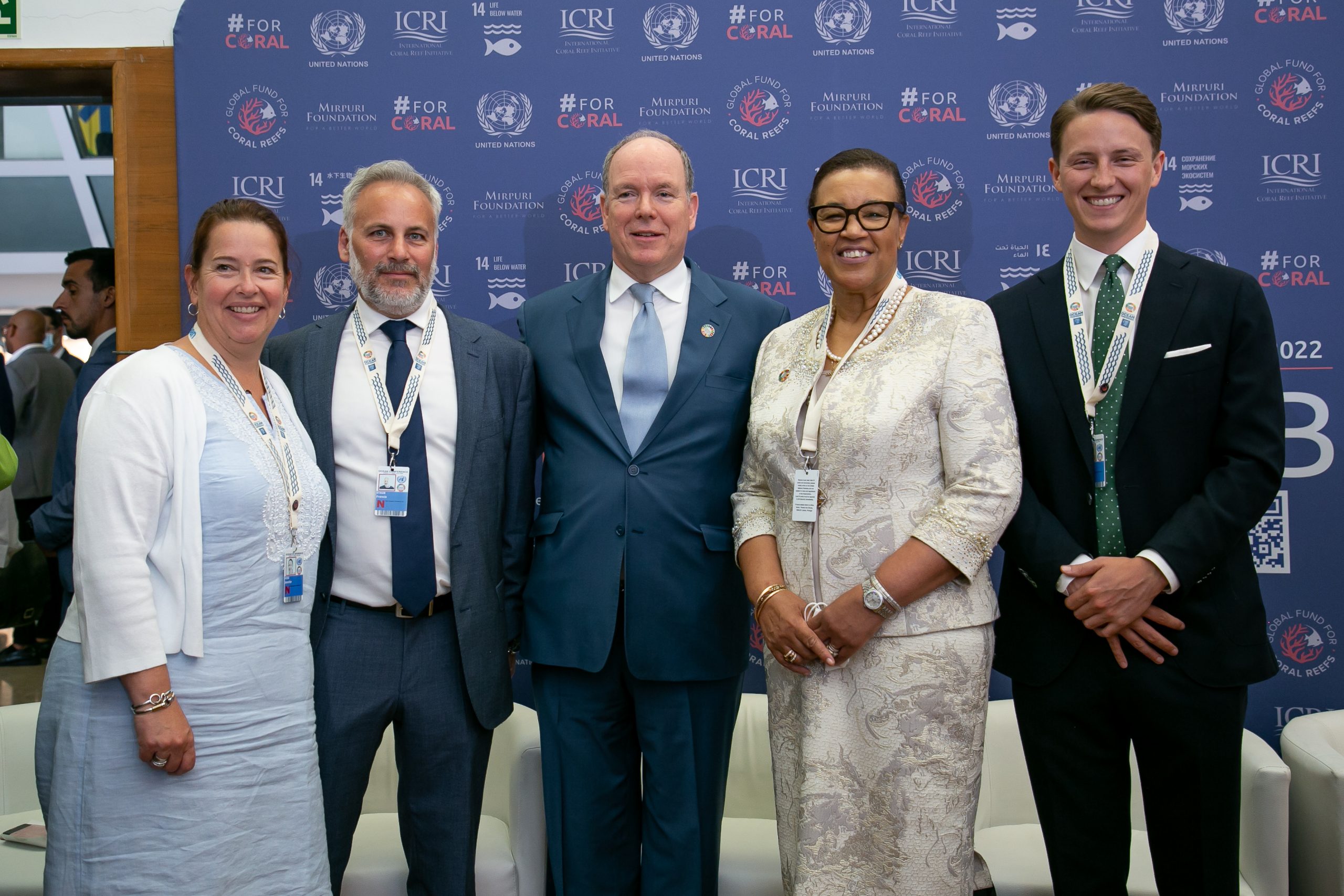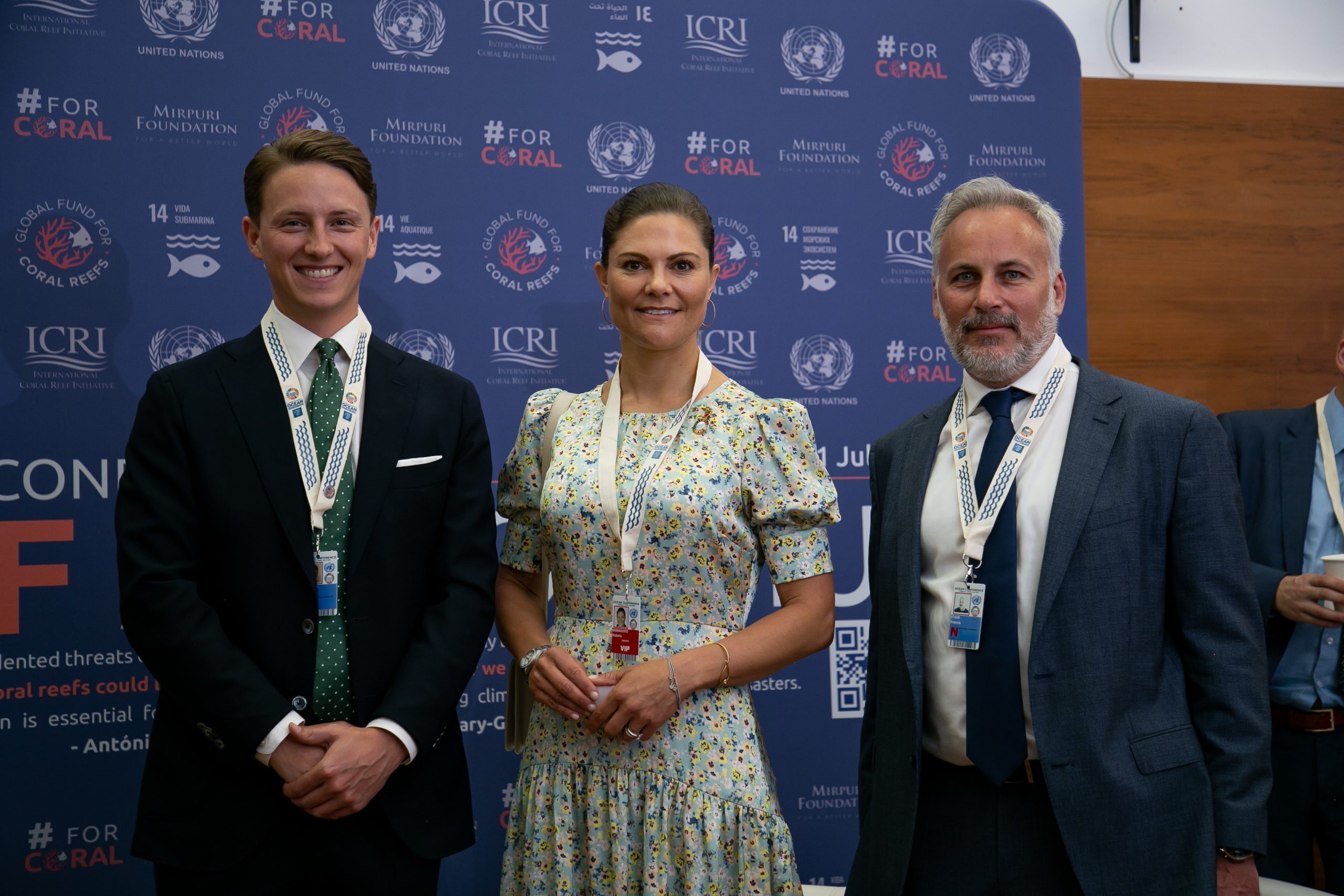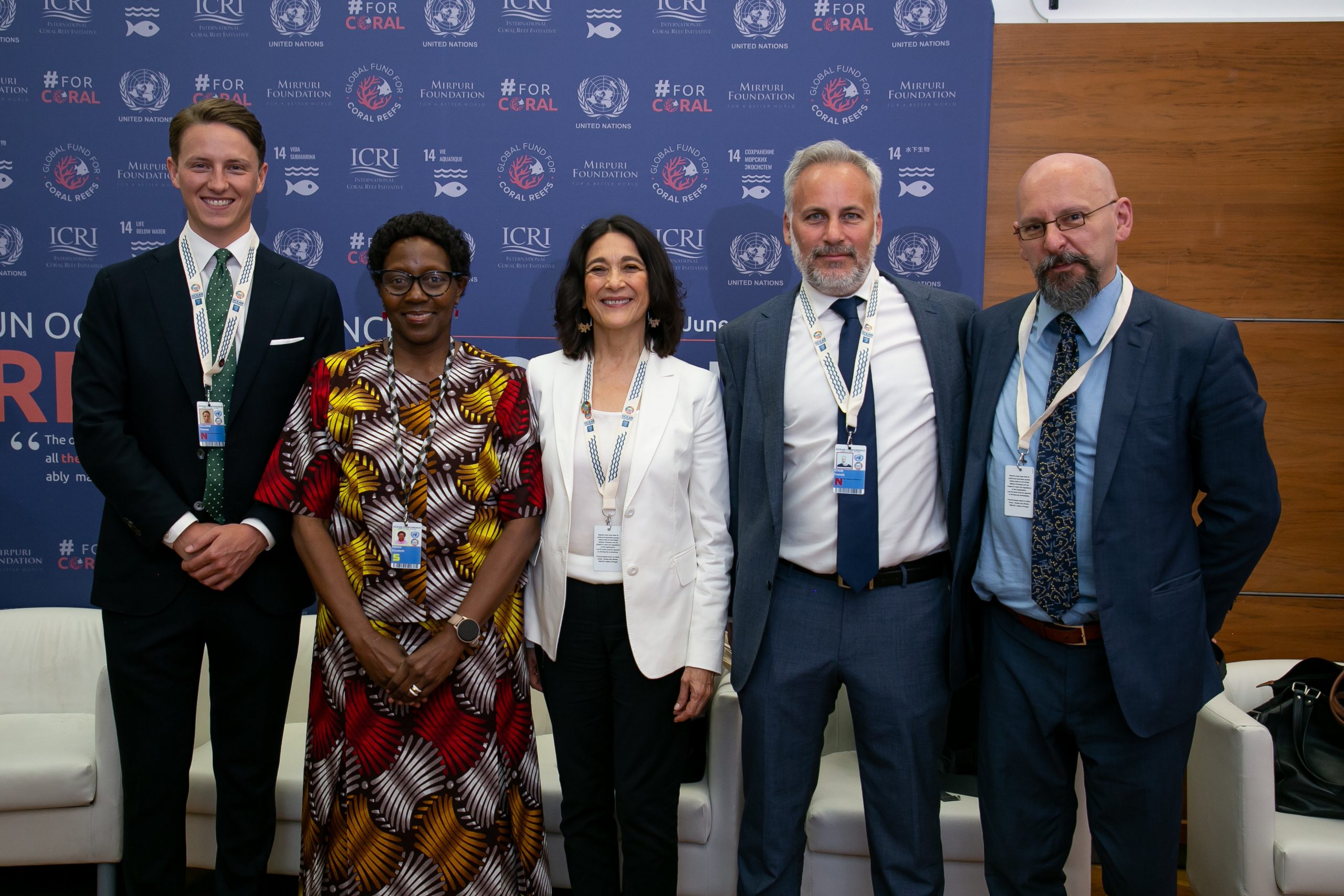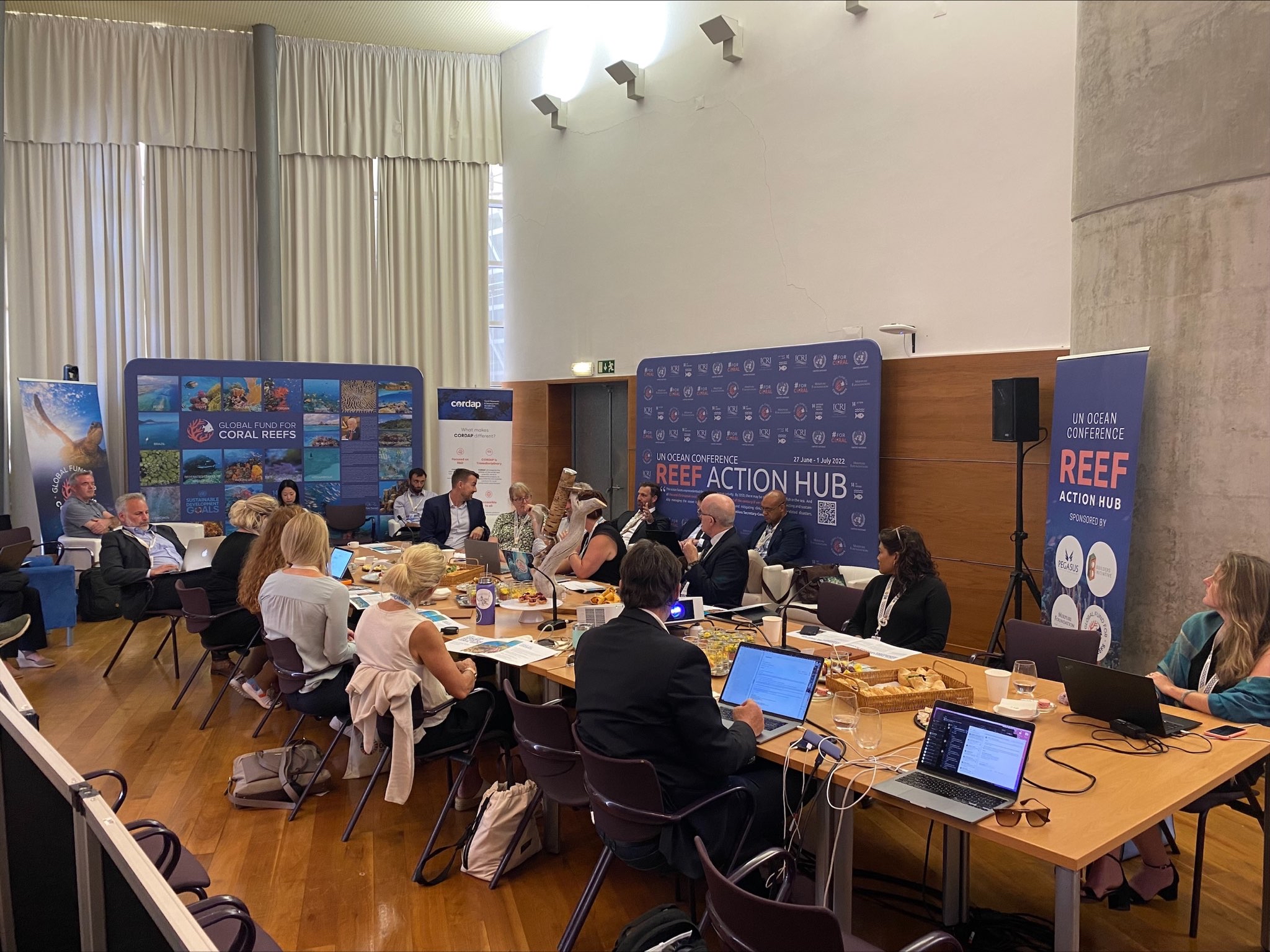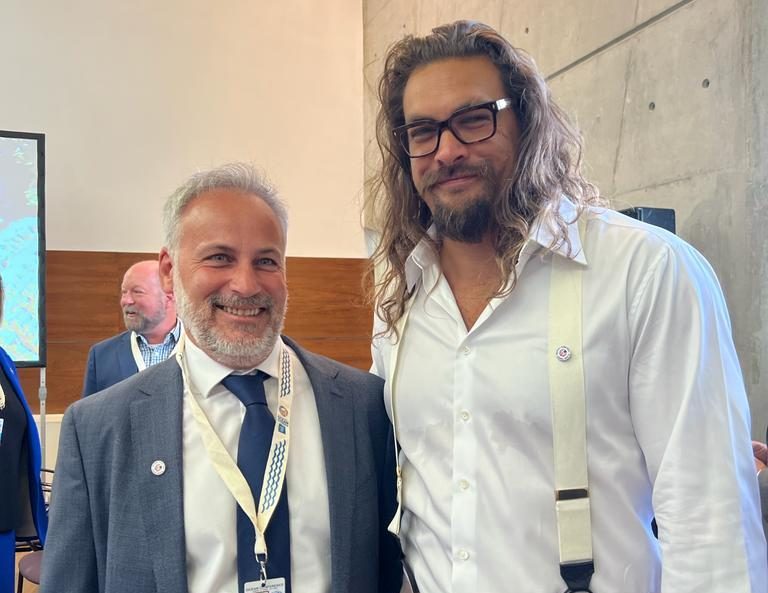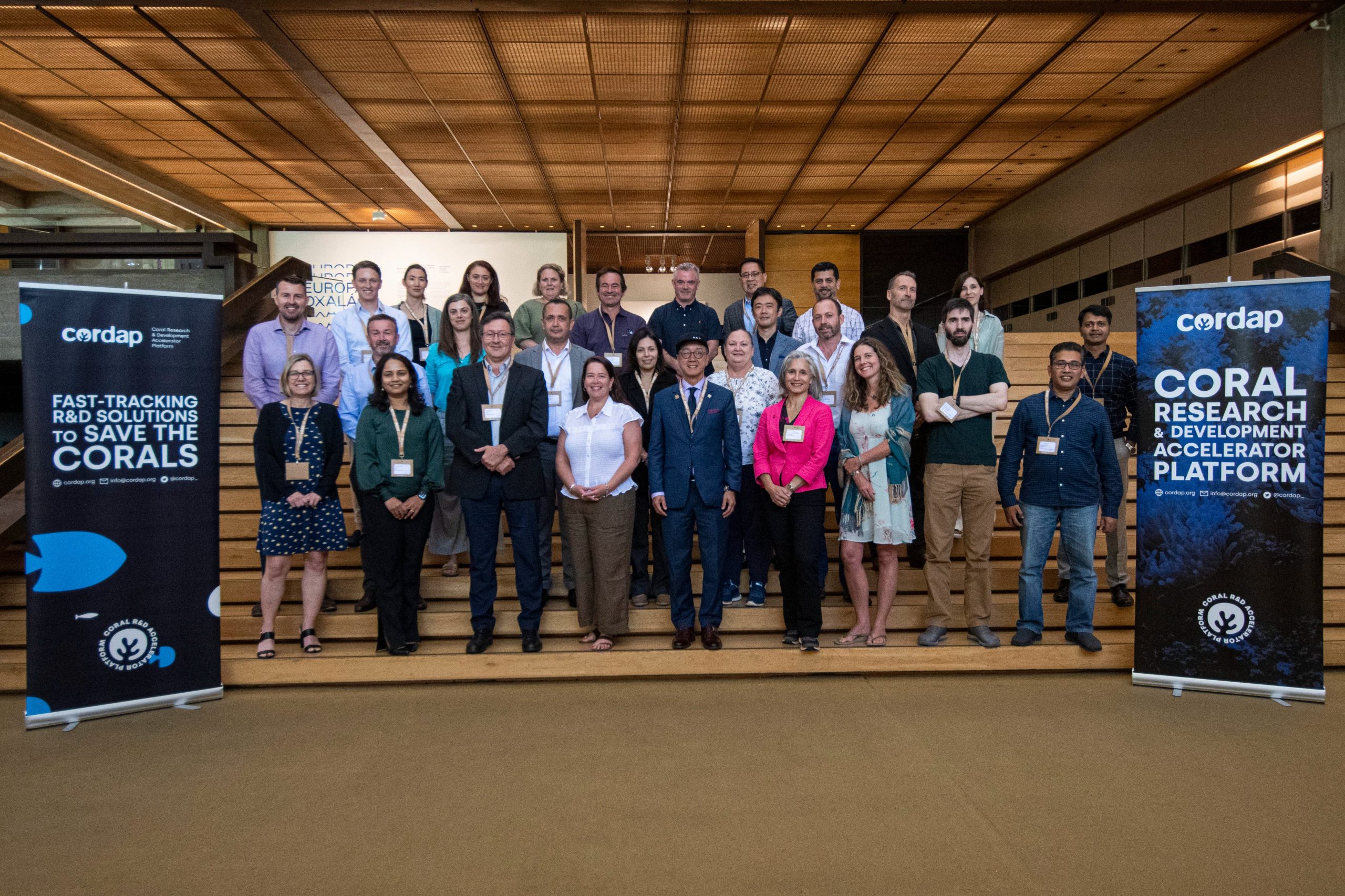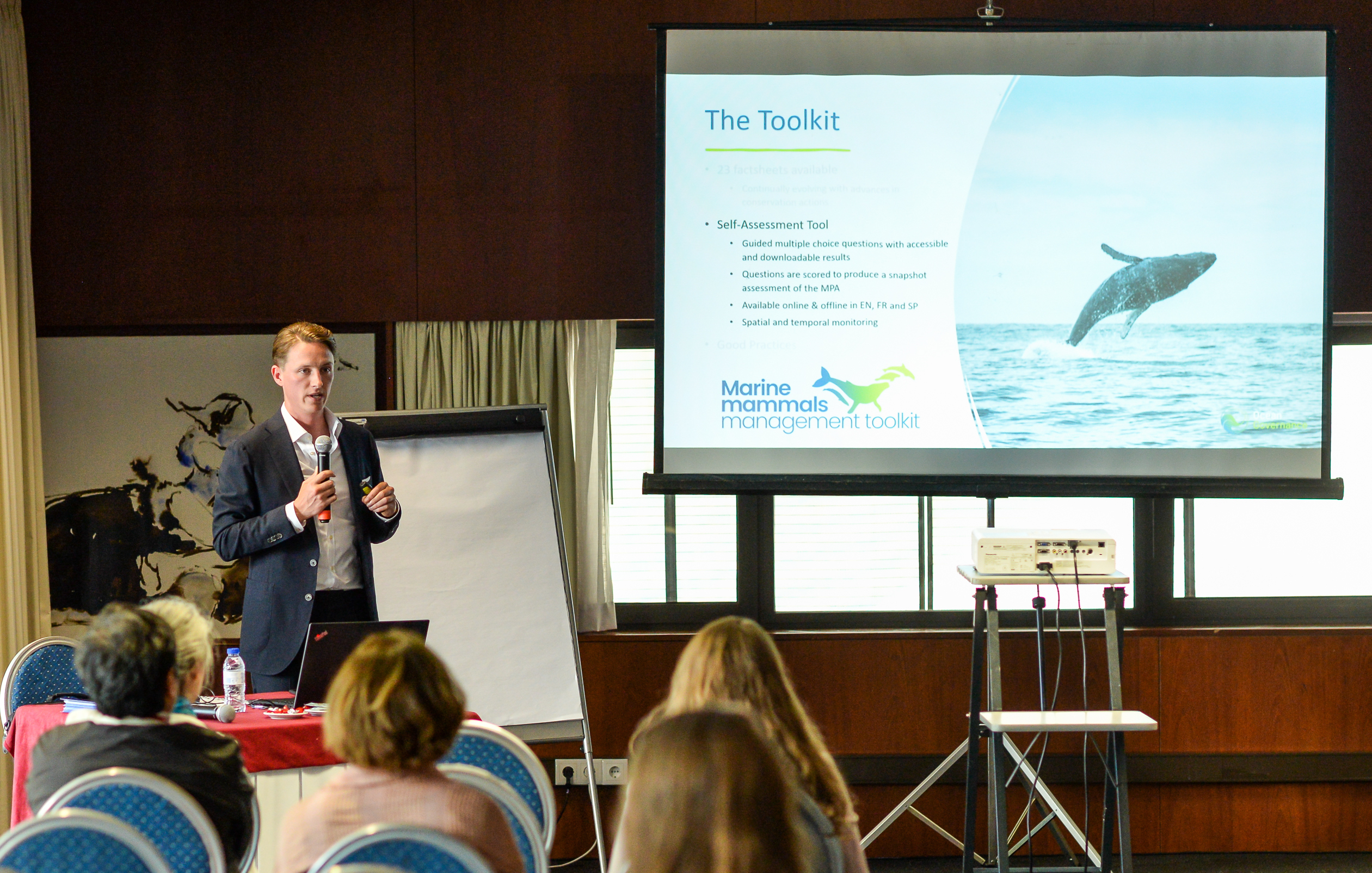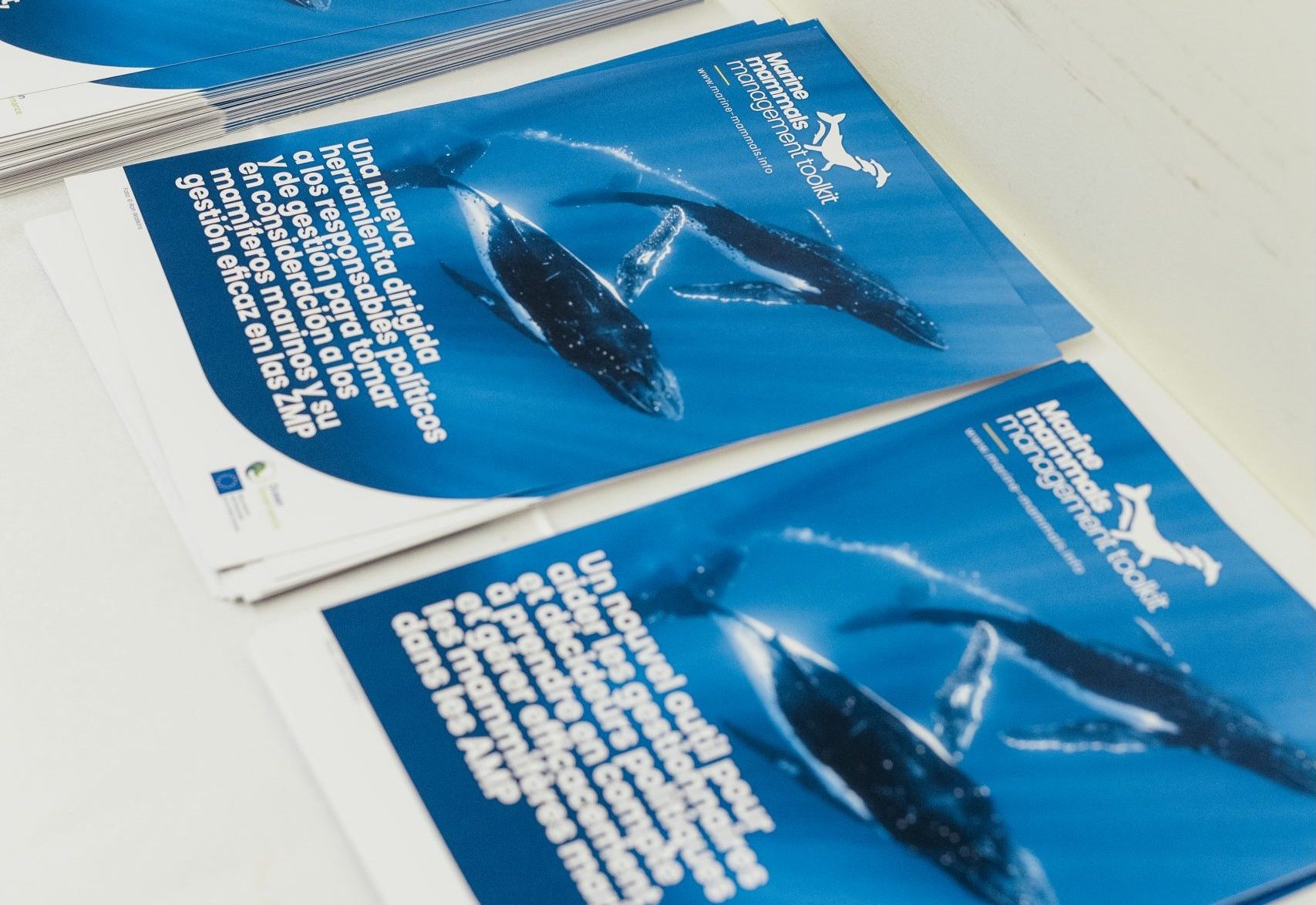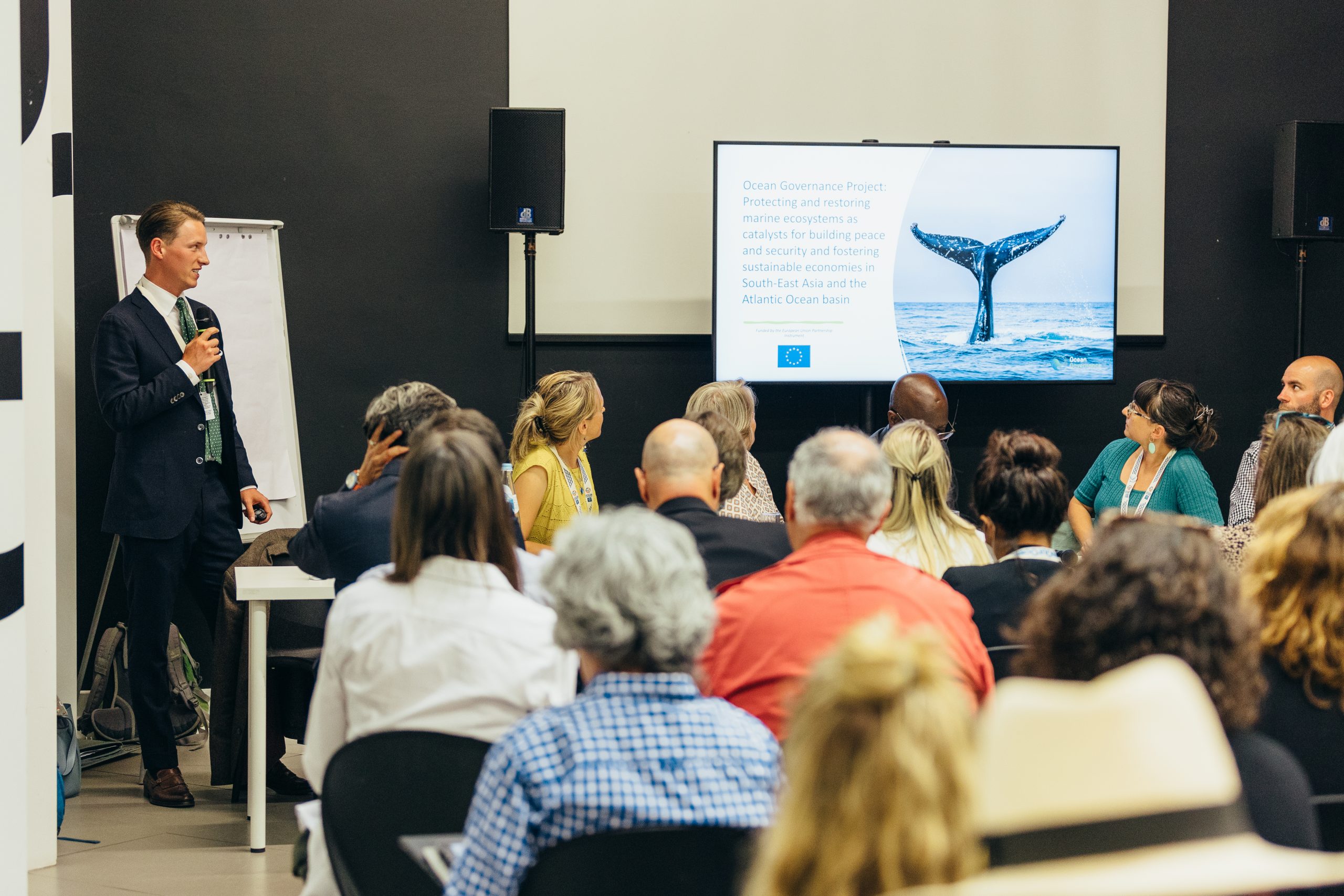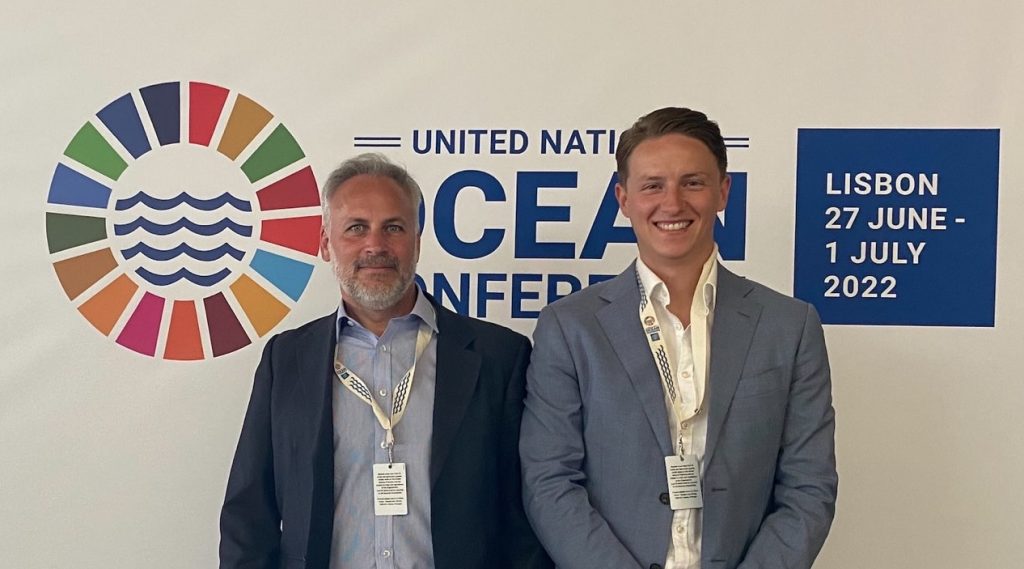From 27th June to 1st July saw the occasion of the 2nd UN Ocean Conference, hosted in Lisbon, Portugal. During the week of ocean action, Francis and Tom organised, and took part in, various events for the different projects of #BluePangolinConsulting. Below are some key takeaways from the events and the UN Ocean Conference:
We must turn the tide #ForCoral
The twin crises of climate change and biodiversity loss have highlighted the urgent need for global action to conserve, manage, and restore coral reefs. The plight of coral reefs, and what is needed to save them, is a core expertise of the Blue Pangolin Consulting team, as part of our longstanding work for the Secretariat of the International Coral Reef Initiative (ICRI), and for one of its operational networks, the Global Coral Reef Monitoring Network (GCRMN).
Francis and Tom were involved in the following coral reefs events on the side-lines of the UN Ocean Conference:
- Organising an exclusive High-level Breakfast event to present the ICRI Plan of Action 2021-2024 to a high-level audience known for its unwavering support of coral reefs, including His Serene Highness Prince Albert of Monaco, Her Royal Highness Princess Victoria of Sweden, Assistant Secretary Monica Medina from the U.S. Department of State, Dr Richard W. Spinrad and Jennifer Koss from the National Oceanic & Atmospheric Administration, Elizabeth Maruma Mrema the Executive Secretary to the Convention on Biological Diversity, the Rt Hon Patricia Scotland QC, Sefanaia Newadra of the Secretariat of the Pacific Regional Environment Programme (SPREP), Martha Rojas Urrego of the Ramsar Convention, Kristian Teleki of the World Resources Institute.
- Organising a meeting for the Global Coral Reef Monitoring Network (GCRMN) to build on the successes of the GCRMN Monaco workshop regarding developing a solution for global coral reef monitoring.
- Attending the Global Fund for Coral Reefs Executive Board Meeting and the Coral Research & Development Accelerator Platform (CORDAP) Scientific Advisory Committee and Initiative Governing Committee meeting
Key takeaways:
- Urgent action is needed to preserve coral reefs, we must turn the tide #ForCoral
- The key words from the high-level breakfast were “action” and “resilience” – and Elizabeth Maruma Mrema called upon leaders in the room for political will to drive the negotiations in CBD Post-2020 Biodiversity Framework.
- The GCRMN will continue to mobilise and build data solutions throughout 2022.
- Blue Pangolin will continue to develop a ‘Coral Unity’ event at the upcoming COPs, through ICRI, to give coral reefs one voice, urging action.
Marine mammals play a key role in the fight against climate change
Marine mammals play a crucial role in marine ecosystem function, providing valuable ecosystem services. However, many continue to be adversely impacted by human activity and are often underrepresented in Marine Protected Area (MPA) management plans, commonly as a result of low capacity, lack of resources and/or knowledge to implement such plans.
To address this, the Marine Mammal Twinning within the framework of the EU-funded Ocean Governance Project has designed and created a toolkit for the inclusion of marine mammals into MPAs. The Marine Mammal Twinning toolkit aims to help build the technical capacities of MPA managers by sharing knowledge, expertise and good practices.
Tom presented the Marine Mammals Management Toolkit at two events during the UN Ocean Conference:
- An event organised by Whale and Dolphin Conservation highlighting the importance of marine megafauna in mitigating the impacts of climate change, joined by Seas at Risk, University of British Columbia, Mission Blue, Clean Arctic Alliance, Government of Belgium, Instituto da Conservação da Natureza e das Florestas (Portugal).
- An event organised by the EU Ocean Governance project, aimed at MPA Managers, “MPA Managers at the centre of international policies”.
Key takeaways:
- Marine mammals provide essential ecological, social and economic services that are vital to a healthy ocean and a sustainable blue future. A key tool to support their effective management is the Marine Mammals Management Toolkit.
- From the whale pump to the great whale conveyor, whales are key in the fight against climate change #SaveTheWhaleSaveTheWorld
The UN Ocean Conference: time to #SaveOurOcean
The UN Ocean Conference, attended by over 6,000 participants from 150+ countries, resulted in the adoption of the Lisbon Declaration by representatives who agreed to scale up science-based and innovative actions to address the ocean emergency. Participants registered more than 700 commitments at the conference, ranging from announcing new marine protected areas, adopting new protective measures, pledging to protect more of the world’s sea area by the end of the decade, and much more.
Key takeaways:
- The UN Ocean Conference launched a new chapter for ocean action: it is our ocean, our future, our responsibility.
- An investment of at least USD 1 billion to support the creation, expansion and management of marine protected areas (MPAs) and Indigenous and locally governed marine and coastal areas by 2030, was made by the Protecting Our Planet Challenge
- The Alliance of Small Island Developing States (AOSIS) launched a Declaration for the Enhancement of Marine Scientific Knowledge, Research Capacity and Transfer of Marine Technology to Small Island Developing States (SIDS)
- Australia pledged USD 1.2 billion to preserve and restore the Great Barrier Reef
- France and Costa Rica announced they will jointly host the next UN Conference in Marseille in 2025
- And much more!

